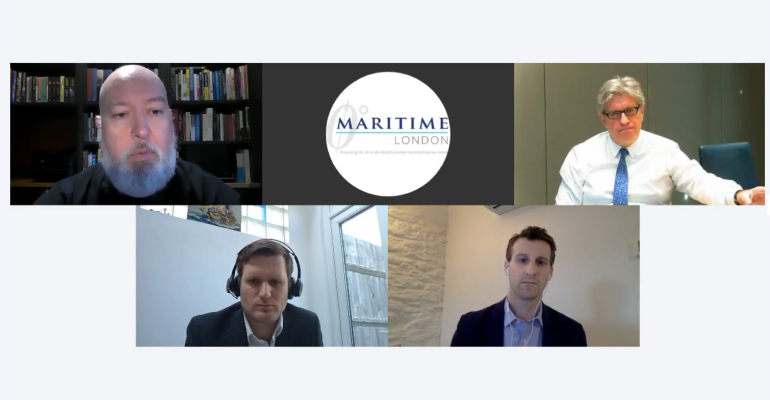While it remains legally possible for insurance contracts close to Russia and Russian interests to function, the effect of sanctions makes it very difficult in practice, Mike Salthouse, Global Director (Claims) at North P&I Association told attendees at a Maritime London webinar.
“Secondary effects of sanctions are really starting to come in and bite our industry. The reality is it is very, very difficult for insurance contracts to function practically where there is a Russian nexus to anything at all, because of bank appetite, because of people hesitating, because of the complexity of the economic sanctions that have been introduced and the need to take legal advice… before you actually make a payment.” said Salthouse.
For any operation with a nexus to Russia, businesses should expect problems from financial services, insurance and P&I clubs said Salthouse. “Not through lack of willingness on our part, we support our ship owners as far as we're practically and legally able to do that. Practically, it is now very difficult to provide anything like a full service on any sort of Russian nexus claim.”
Fellow panellist Ince Global Senior Partner Julian Clark put the importance of sanctions in context, answering a question on what a company should do if a counterparty entity is sanctioned mid-voyage or mid-contract.
“I was discussing this with ITIC and we both formed a view that in those situations where you have a conflicting obligation under your existing contract, let's say a SOLAS obligation or let's say now, a sanctions obligation, sanctions probably trumps everything,” said Clark.
While P&I clubs have experience handling situations with liabilities towards sanctioned entities in Iran, the larger scale of Russia’s economy creates extra difficulty, said Salthouse.
P&I clubs have become very experience with dealing with sanctions over the past few years said Salthouse, and the biggest change he’d seen recently was the maturing or relationships with regulators.
“They're very quick to tell us that they've identified sanction-breaking activity, and we're very quick to tell them if we disagree, but there is that conversation that goes on. I think that reduces the risks to us as clubs, but it also ensures that there are other sources of unlawful activity being drawn to our attention, on which we will act. There is no appetite at all, on the part of marine insurance, to break sanctions,” said Salthouse, adding that sanction breakers will not enjoy cover.
Copyright © 2024. All rights reserved. Seatrade, a trading name of Informa Markets (UK) Limited.
Add Seatrade Maritime News to your Google News feed.  |

